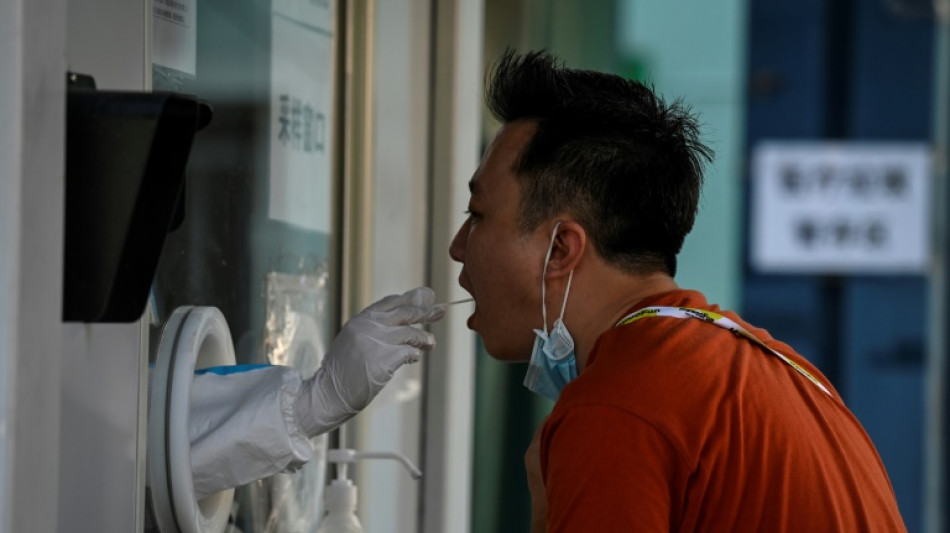
RBGPF
-0.9200


Around 21 million people in the Chinese city of Chengdu effectively went into lockdown on Thursday as authorities raced to snuff out a new Covid-19 outbreak.
China is the last major economy wedded to a zero-Covid policy, stamping out virus flare-ups with snap shutdowns, mass testing and lengthy quarantines.
Chengdu, in the southwest, became the latest city to announce a shutdown, saying in an official notice that residents must "stay home in principle" from 6:00 pm (1000 GMT) on Thursday to combat a new wave of infections.
Each household will be allowed to send one person out to buy groceries and essential goods per day, provided they have tested negative in the previous 24 hours, the notice said.
It added that all residents would be tested for the virus between Thursday and Sunday, and urged them not to leave the city unless "absolutely necessary".
"The current state of epidemic control is abnormal, complex and grim," the announcement said, adding that the measures aimed to "decisively arrest the spread of the outbreak and guarantee the health of all citizens".
Chengdu recorded 157 new local infections on Thursday, of which 51 displayed no symptoms, the city government said in a separate notice.
Swedish carmaker Volvo said the lockdown had forced it to temporarily close its Chengdu plant, which employs nearly 3,000 people.
Photos of empty supermarket shelves and Chengdu residents scrambling to hoard groceries went viral on social media.
Children in at least 10 cities and provinces across China are facing disruptions to their new academic year as pandemic controls force schools to switch to online learning, according to a report run Thursday in state-affiliated media.
Xining, the capital of western Qinghai province and home to 2.5 million people, has rolled out a mass testing drive and told residents in its main urban area to work from home for three days.
China's southern hub of Shenzhen said new virus restrictions would come into force Thursday evening in its Nanshan district, which hosts the headquarters of tech giants Tencent and ZTE.
The district government said it had ordered entertainment venues including bars, cinemas and karaoke clubs to close, and started requiring residents to produce a recent negative Covid test to enter their housing compounds.
China has stuck to its zero-tolerance virus strategy despite concern that the approach is stifling its economy.
Last month, travellers in the southern island province of Hainan protested after more than 80,000 tourists were stranded in a resort city because of a Covid-19 flare-up.
Social media videos from the eastern megacity of Shanghai showed panicked crowds fleeing an Ikea store and another building as officials tried to impose local lockdowns in response to just two suspected cases.
K.Tanaka--JT